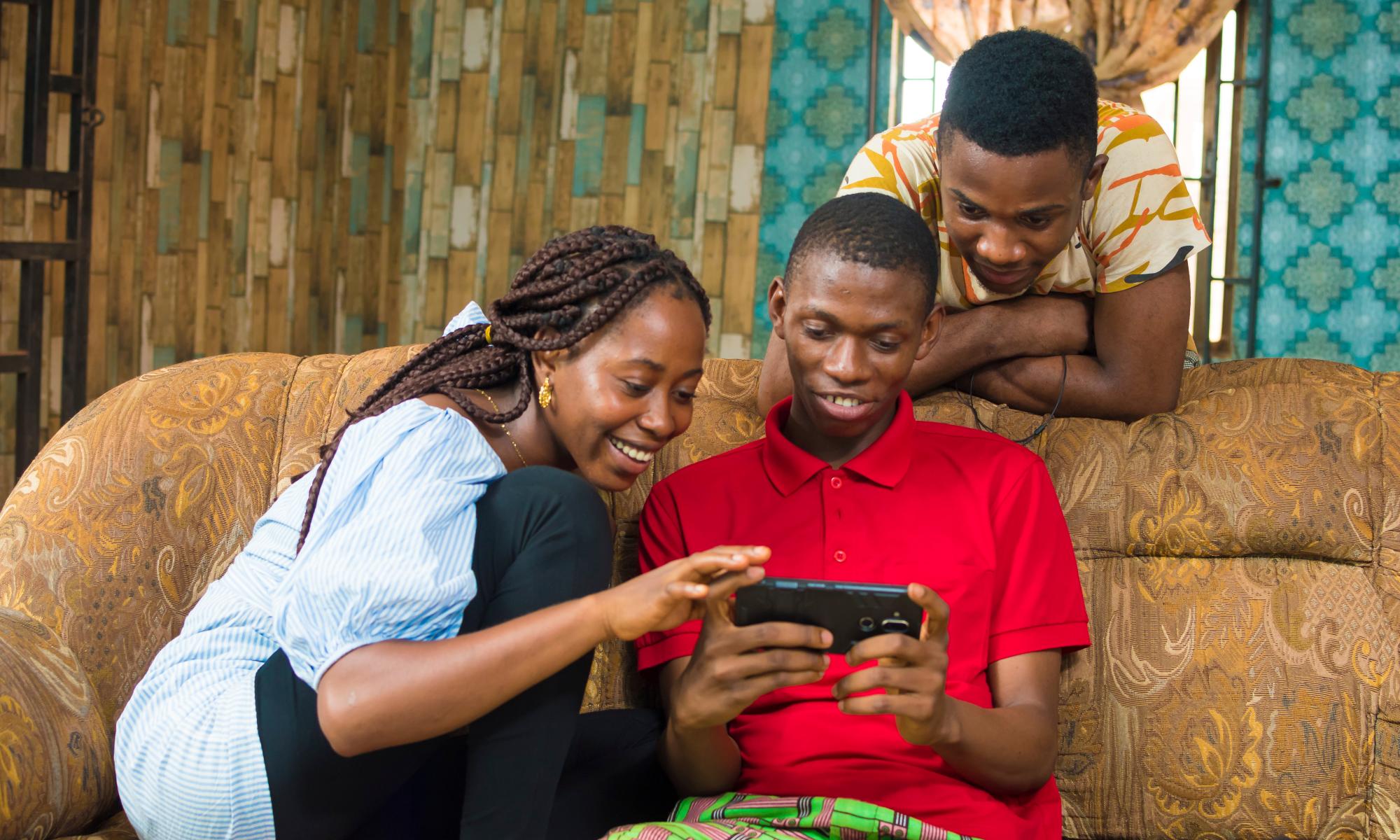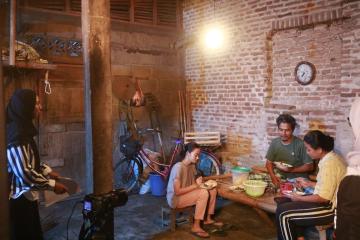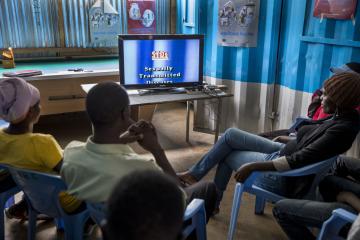
An entertaining television drama series led young adults to adopt safer sexual health practices—succeeding where other public health campaigns have struggled.
Information alone isn’t usually enough to change behaviors. Young people may not be aware of healthy practices that can keep them safe, and traditional public health campaigns, which aim to change behavior through providing information, aren’t always able to reach young adults who could most benefit.

Presenting information in engaging, entertaining ways can make a difference. Media content with relatable characters and storylines, shared on television and other platforms like games and social media, can help break through the noise and catalyze behavior change. Research shows positive impacts of educational entertainment campaigns in areas ranging from sexual health to financial planning, literacy, and gender-based violence.
Information is just one piece of the puzzle: Access to resources is also essential for behavior change. For example, to promote sexual health among youth, ensuring the easy accessibility of STI tests, condoms, and antiretrovirals is critical.
Nearly 40 million people around the world are living with HIV, more than two-thirds of them in sub-Saharan Africa. Teens and young adults, particularly girls and young women, are at particular risk of contracting HIV. Despite large investments by governments, multilaterals, NGOs, and funders in reducing the prevalence of HIV and other sexually transmitted infections, new HIV infections among adolescents are not declining quickly enough to reach Sustainable Development Goal targets.
MTV developed an engaging way to reach young viewers, increasing their knowledge about HIV, boosting test rates, and changing beliefs about the stigma of living with HIV. The television drama Shuga followed a group of college students as they navigated career ambitions, relationships, and sexual health. The series aimed to promote healthier physical and social behaviors among young people, and it worked. A randomized evaluation found that viewers were more likely to get tested for HIV, less likely to test positive for other sexually transmitted infections, and more knowledgeable about safe sex, and they reported less negative perceptions of community members living with HIV. The series also shifted other sexual health behaviors: Female viewers were less likely to test positive for chlamydia.
The more immersed people were in the narrative, the stronger the effects. Other studies show that presenting health messages in an entertaining and dramatic way helps it stick better. In Burkina Faso, for example, a randomized evaluation found that a radio campaign that presented fictional characters grappling with decisions about contraceptive use helped increase female listeners’ use of contraceptives.
Educational entertainment is an important tool in a broader development toolkit. Information, no matter how compelling, isn’t enough to change behaviors if young people don’t have access to other health care resources. But when combined with interventions that increase access to condoms, testing, and antiretrovirals, and that tackle harmful gender norms that constrain health choices, edutainment offers a promising solution to slowing the spread of HIV and other STIs among young people.
Media interventions have the potential to shift behaviors at scale. MTV Staying Alive Foundation tailored its messaging based on the evaluation results and produced seven more seasons airing on channels in Nigeria, South Africa, and Cote d’Ivoire. Shuga and its spinoffs have now been broadcast to more than 720 million households across more than 70 countries. Many other creative organizations have since adopted edutainment approaches, using movies, radio, social media, and games to address topics from financial planning to literacy to gender-based violence.
Implementing partners
Implementers bring deep local knowledge, technical expertise, and a commitment to evaluation and learning as they bring these programs to life. Partners include the following key collaborators (listed in alphabetical order); this list is not exhaustive.

The role of foreign assistance and philanthropy
MTV Staying Alive Foundation receives funding from a number of philanthropies and private sector funders, enabling the creation of highly-produced content that both entertains and delivers key public health messages. Partners of MTV Staying Alive Foundation include the Gates Foundation, Johnson and Johnson, Paramount, the David and Lucile Packard Foundation, and Unitaid.
Philanthropy and multilaterals have also played an important role in testing new ideas and building evidence around the effectiveness of edutainment. The Gates Foundation and the World Bank funded the evaluation in Nigeria. The World Bank has collaborated with the private sector and academic researchers to rigorously evaluate the impacts of edutainment programming on changing attitudes and behaviors at scale in many other countries. The goals of these programs range from reducing violence against women to preventing malaria to tackling online hate speech. The World Bank has shared key findings with policy stakeholders and helped mobilize support from bilateral and philanthropic partners to expand edutainment programming.
Discover more from J-PAL
Improving youth sexual health through educational entertainment
Changing Perceptions of Child Marriage Using Edutainment in Indonesia
Discover more from other sources
Seasons and spin-offs
MTV Shuga
DIME Edutainment
World Bank
Photos:
(1) A group of young friends. Credit: Shutterstock.com
(2) Jemima Osunde as Leila and Olumide Oworu as Weki in the edutainment show MTV Shuga. Credit: MTV Shuga




